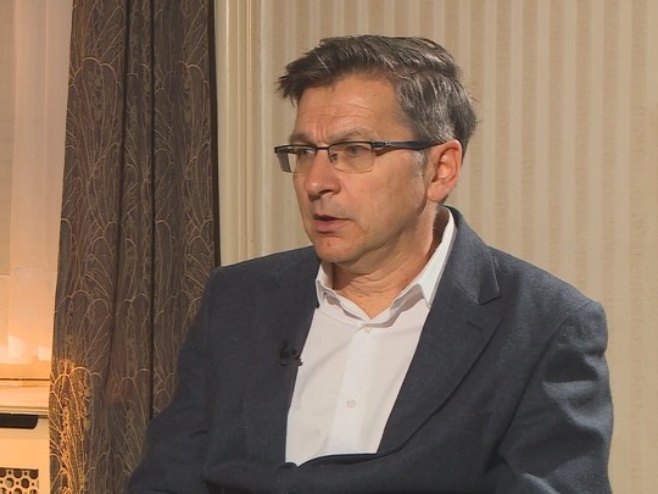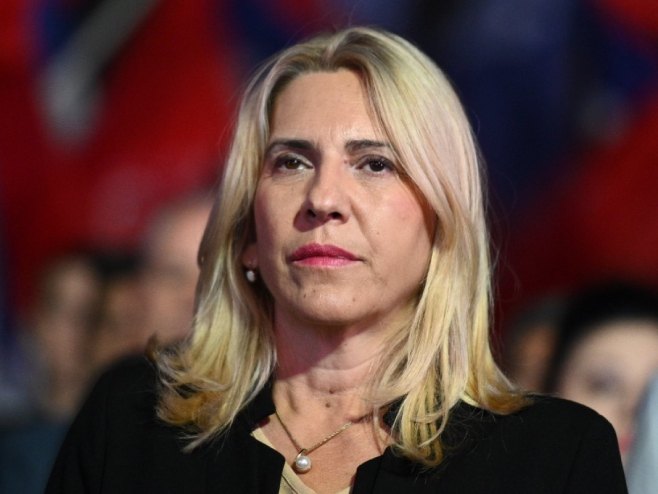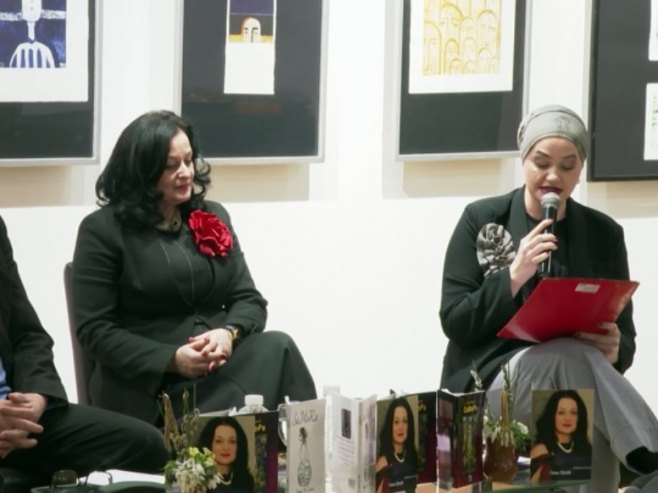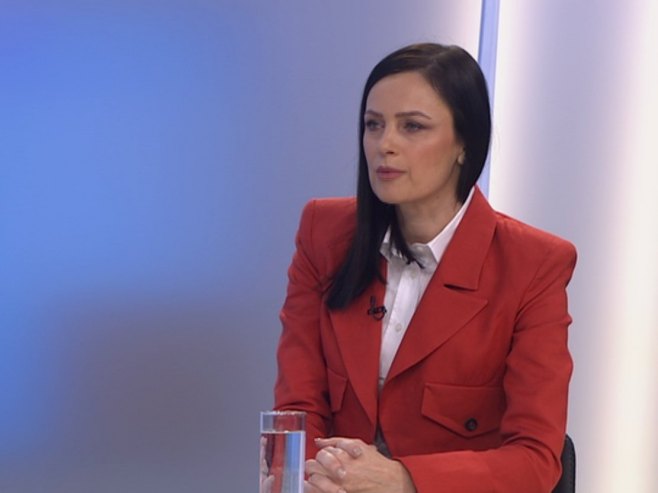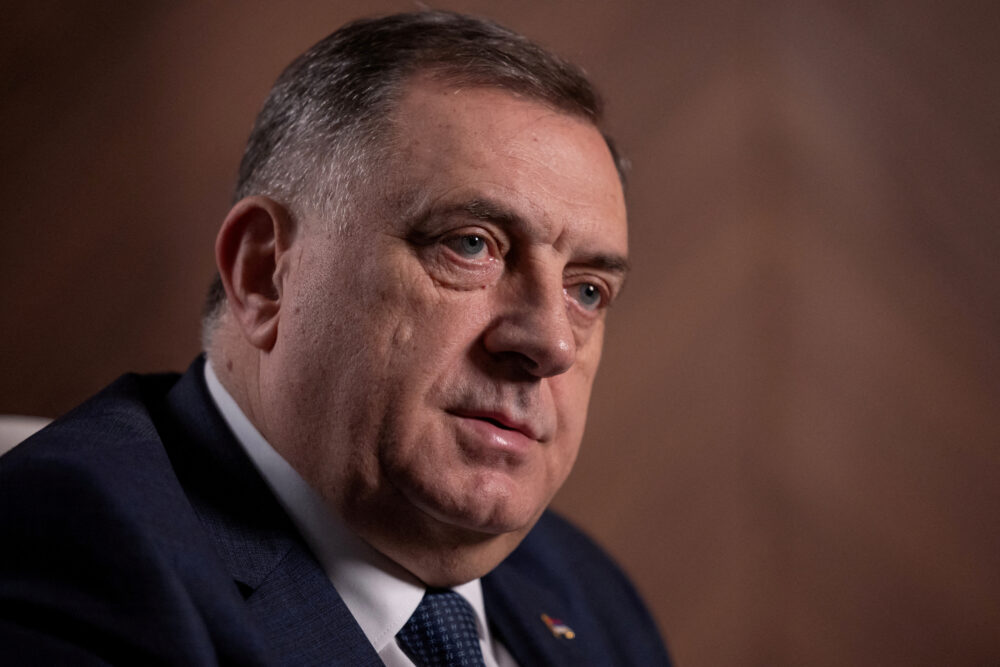The Serb member of the Presidency of Bosnia and Herzegovina, Željka Cvijanović, stated that for Republika Srpska, the most important development is the current normal and rational approach by the United States, which opens a new perspective for cooperation—especially in the fields of economy and security.
In an interview with Večernje novosti, Cvijanović emphasized that, unlike Bosniak politicians, Republika Srpska has never sought favoritism from the U.S., but only equal treatment and respect for the actual text of the Dayton Peace Agreement.
When asked whether the diplomatic efforts of Republika Srpska in the U.S. might lead to the lifting of sanctions against its officials, Cvijanović replied that previous U.S. administrations had engaged in all kinds of abuses and manipulations through the sanctions regime.
She stressed that sanctions were not the cause, but the consequence of harmful and unjust actions by former U.S. administrations led by Barack Obama and Joseph Biden, who, she noted, were soundly defeated in the last presidential election.
“It’s no secret that Republika Srpska hoped for and welcomed that outcome, while political Sarajevo favored the continuation of a globalist agenda aimed at promoting an anti-Dayton concept of centralization,” said Cvijanović.
She added that much has been revealed in recent months, though this is not the time to discuss it in detail.
“After all, the previous U.S. administration, which imposed massive sanctions on individuals and entities from Republika Srpska, also inflicted great harm on President Trump and the people around him. There is a growing number of influential figures in Washington who understand this very well,” she added.
Cvijanović said that Republika Srpska highly appreciates the approach of the new U.S. administration led by President Trump, and the messages coming from his representatives.
According to her, their policy is based on the principle of non-interference in the internal affairs of other countries.
“This is a major departure from the previous administration, which pushed nation-building and foreign-imposed dictatorship—policies that are completely contrary to Trump’s political philosophy and the vision of democracy promoted by Vice President Vance,” Cvijanović noted.
She pointed out that the remarks made a few months ago in Dayton by Deputy Secretary of State Christopher Landau reflect the new administration’s approach.
“America no longer wants to act as a global policeman. As for Bosnia and Herzegovina, all open issues should be resolved through cooperation and dialogue. This is precisely what Republika Srpska advocates,” Cvijanović said.
This, she added, opens up a new perspective for cooperation, particularly in areas such as economic development, security, counter-terrorism, and addressing other security threats and challenges.
Responding to a question about whether there are any initiatives for a “Dayton II” agreement, Cvijanović said that this topic was not raised during the Dayton conference or in any other forum.
“The discussions mainly focused on the strategic directions of the new American administration led by Trump. They are interested in preserving peace and stability in Bosnia and Herzegovina, where decisions are made by its institutions and where elected representatives reach solutions through dialogue,” she stated.
She emphasized that it was clearly stated that the U.S. does not intend to dictate how people in Bosnia and Herzegovina live or to impose solutions, as was done by previous administrations.
“On the other hand, those calling for more international interventions in Bosnia and Herzegovina or the continuation of sanctions and foreign dictates were limited to Christian Schmidt and a few already retired representatives of the so-called deep state. Their time is running out,” Cvijanović said.
She argued that the core problem with the Dayton Agreement lies in the unlawful revisions it was subjected to shortly after signing, which eroded trust and led to ongoing crises.
“This is not the fault of Republika Srpska, but of foreign actors who have imposed unsustainable solutions here for decades—along with Sarajevo politicians whose political wishes these foreigners have fulfilled, all under the guise of creating a functional Bosnia and Herzegovina. In reality, the country has been paralyzed by experimental and dictatorial foreign interventions,” she said.
Commenting on the failure to impose sanctions on Russia due to Republika Srpska’s stance, Cvijanović reaffirmed that Republika Srpska supports peace and dialogue.
“From the very beginning, we have been very clear on this matter, and our position has not changed. We are principled in our opposition to any sanctions. All we want is for peace to finally be established in Ukraine and for the suffering and destruction to stop. We’ve experienced both war and sanctions, and we know all too well what both bring—or rather, what they take away,” she concluded.
Source: RTRS
